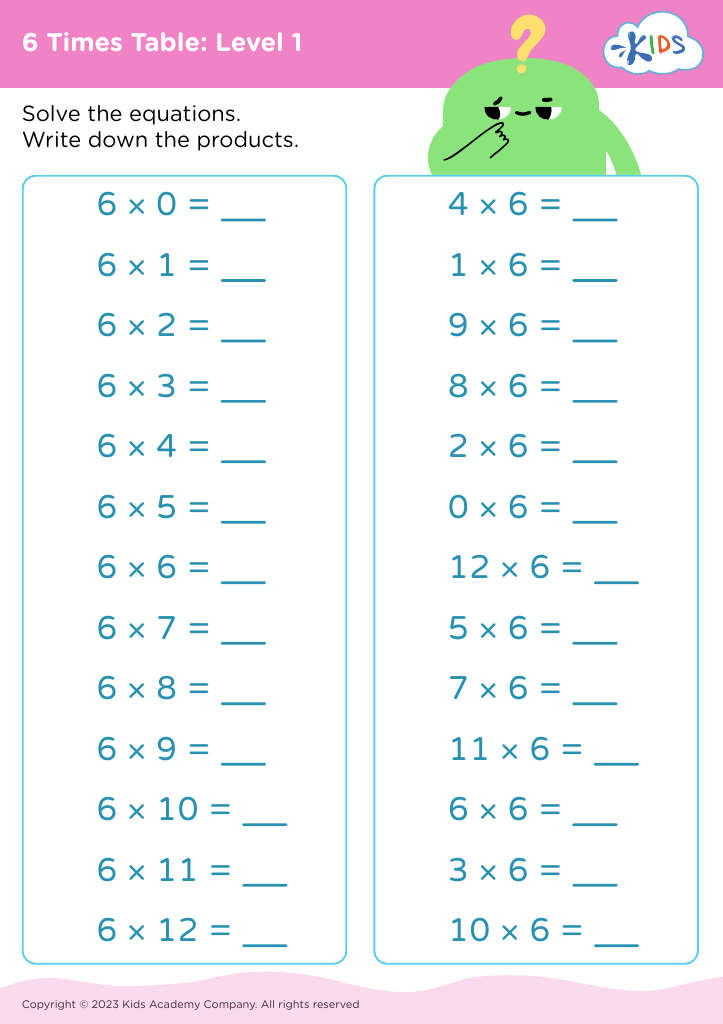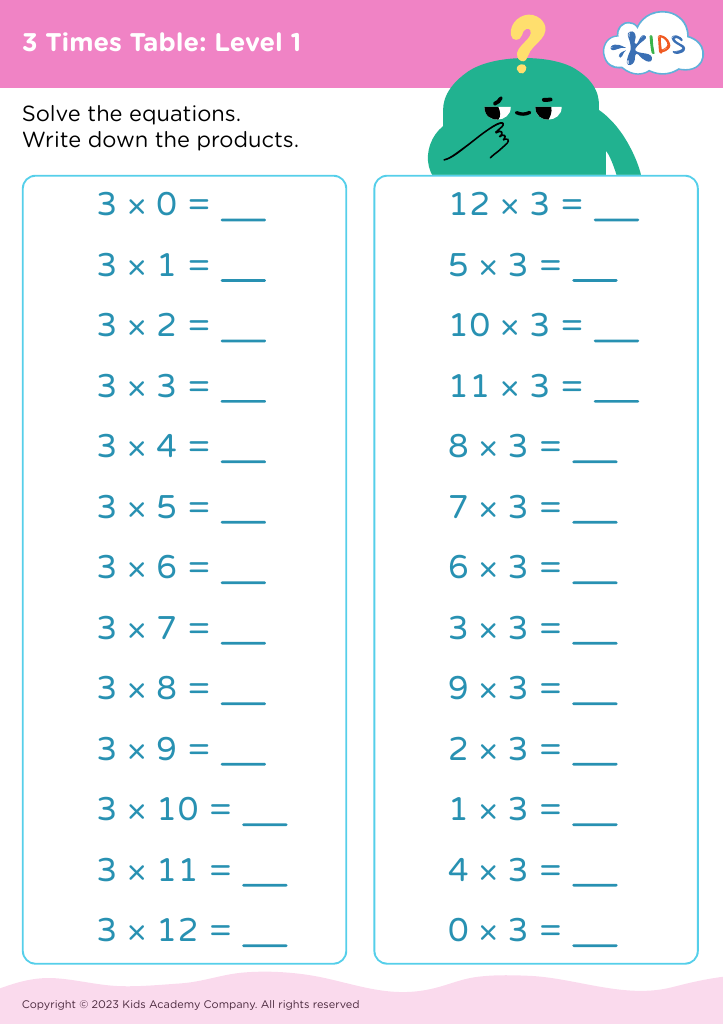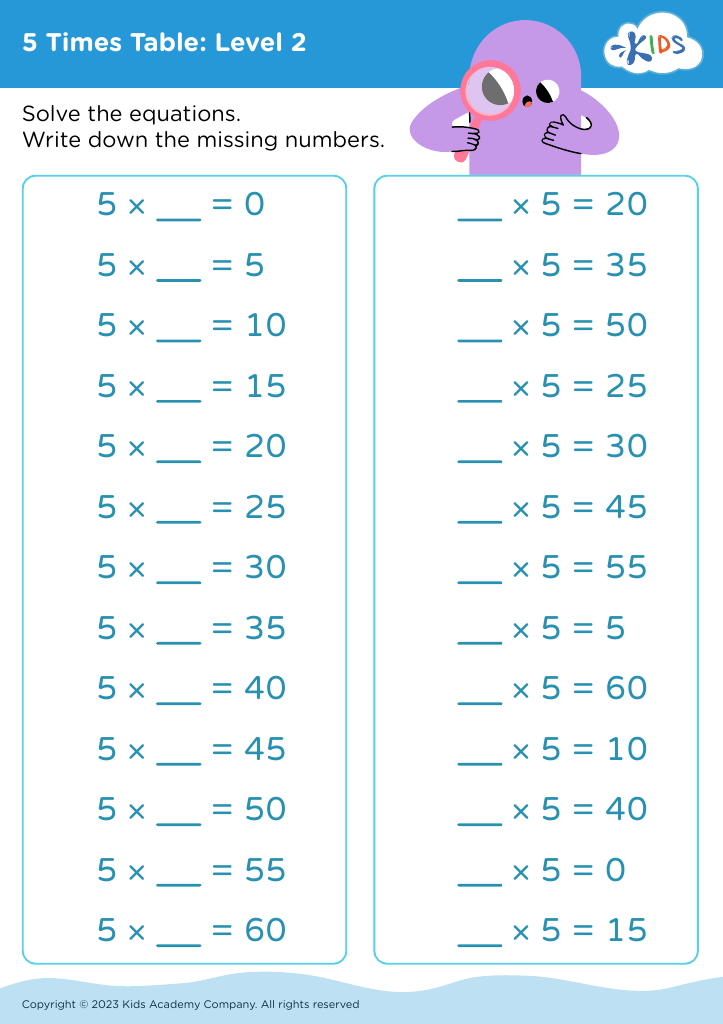Times table familiarity Worksheets for Ages 4-8
3 filtered results
-
From - To
Boost your child's math confidence with our Times Table Familiarity Worksheets for Ages 4-8, available on Kids Academy. Designed to introduce and reinforce essential multiplication skills, our engaging, age-appropriate worksheets help young learners master times tables through fun activities and colorful illustrations. The exercises promote logical thinking, pattern recognition, and problem-solving skills, ensuring that your child develops a strong foundation in mathematics. Whether practicing at home or supporting classroom learning, our worksheets are the perfect resource to enhance your child's math journey. Empower your young learner today with Kids Academy's expertly crafted times table worksheets!
Times table familiarity for children ages 4-8 is fundamental to their mathematical development and overall cognitive growth. At this early stage of education, a solid grasp of multiplication tables establishes the bedrock for advanced math concepts and problem-solving skills they'll encounter later. Introducing this early on enables kids to recognize patterns, enhances their number sense, and fosters a deeper understanding of arithmetic operations, producing confident and competent learners.
Besides practicality in honed skills like quick mental math and efficient problem-solving, learning times tables also boosts memory and cognitive abilities. Regular practice with multiplication tables aids in memory retention and recall, which is advantageous not just for mathematics but for other subjects and everyday activities. These skills are applicable outside of the classroom in contexts such as shopping, cooking, and time management, helping children grasp practical mathematics issues they encounter daily.
Moreover, familiarity with times tables can stimulate a child's academic self-esteem. Understanding this critical aspect of arithmetic empowers students, encouraging a positive attitude toward learning and academics in general. This preparedness and confidence make mathematical concepts less daunting and increase their willingness to tackle more challenging subjects, creating a virtuous cycle of understanding, application, and achievement. Ultimately, developing a strong foundation in times tables at an early age sets children up for long-term academic and personal success, making it an essential priority for parents and teachers alike.
















